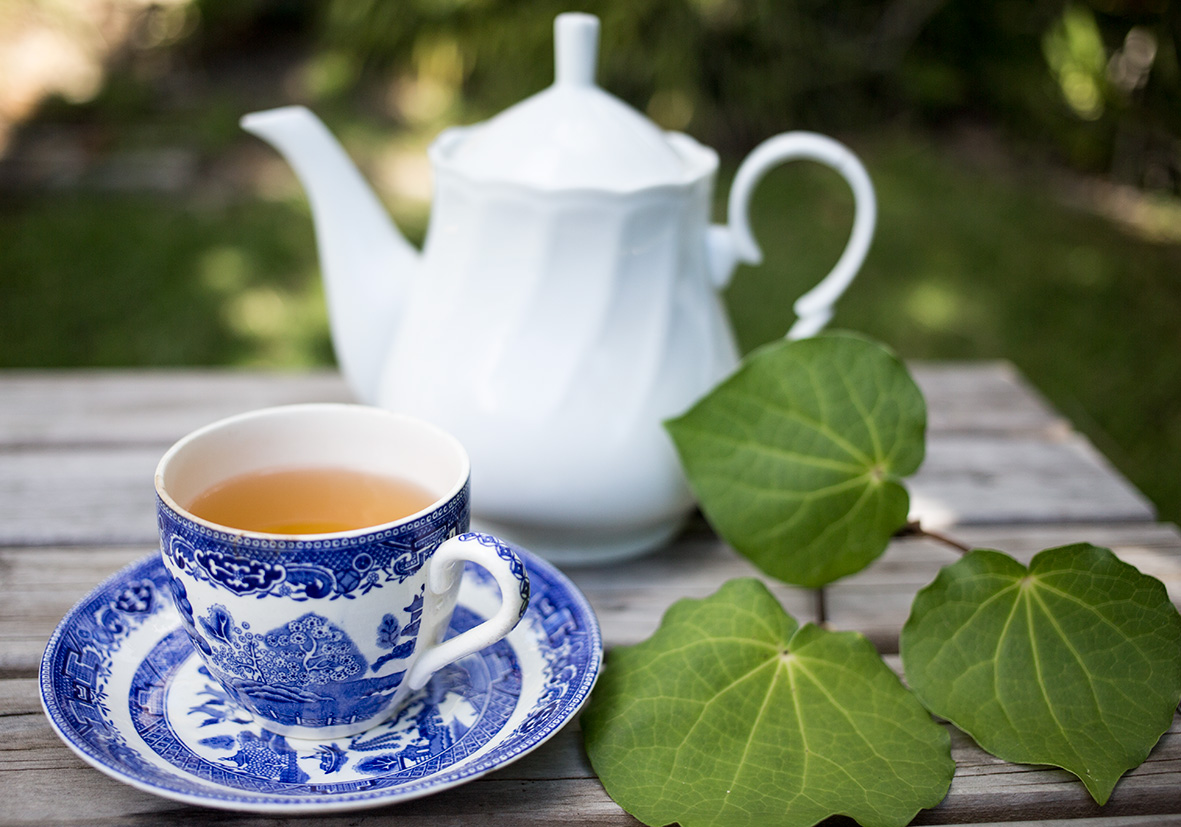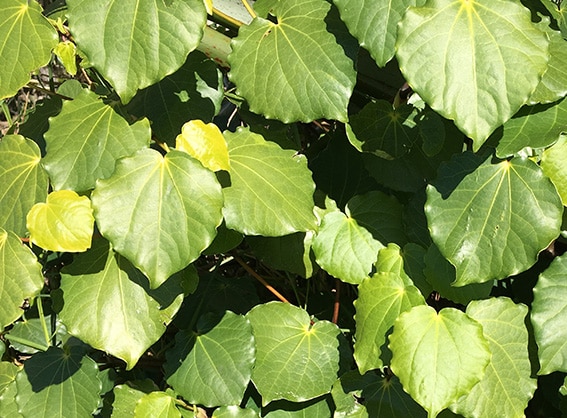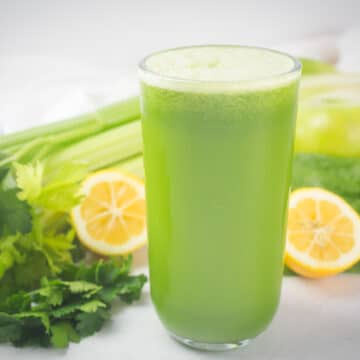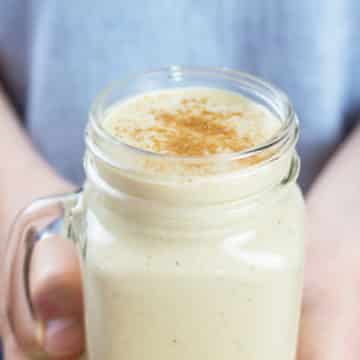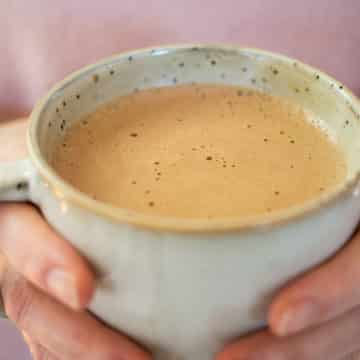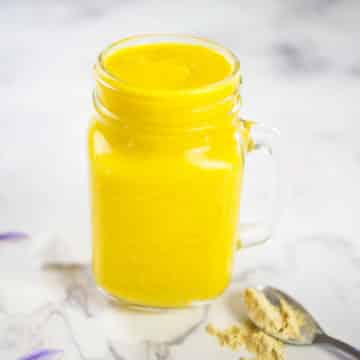Kawakawa tea is a refreshing and revitalizing tea making it one of my favourite herbal teas. In Rongoā or traditional Māori medicine Kawakawa is thought to be a tonic for overall health with mild cleansing properties, its therapeutic actions supporting many ailments including digestive, circulatory and rheumatic complaints.
It is still widely used today with its distinct refreshing taste and multiple health benefits making it a great choice if you are looking for a new herbal tea to enjoy.
Kawakawa has a fresh and slightly peppery taste. It is a member of the pepper family (Piperaceae), its circulatory stimulant properties can help to warm a cool constitution, support healthy circulation and bring blood flow to the gut helping with digestive disorders.
Kawakawa (Macropiper Excelsum) is native to New Zealand and is commonly found along the shores of New Zealands' coast line, its distinctive bright green heart shaped leaves are quite easy to spot.
Kawakawa was one of my favourite native herbs when learning about New Zealand native medicinal herbs during my Naturopathic training due to its many therapeutic uses in Rongoā (Traditional Māori Medicine).
In rongoā illness for Māori was often viewed as a symptom of disharmony with nature and the spiritual world. Māori healing was frequently a mixture of rākau rongoā (native medicinal preparations), mirimiri (massage) and karakia (prayer). I love this approach as it really focuses on the whole person and not just a specific ailment.
Traditionally, knowledge of rongoā was considered tapu (sacred) and was passed on to a select few. A person was selected for training by a tohunga pu (expert) from the whare wānanga (house of learning). I am eternally grateful to the knowledge I gained from Rongoā practitioners during my naturopathic and herbal medicine training and for sharing their extensive knowledge, kindness and wisdom.
Traditionally there was no differentiation between treatment using herbs to treat the physical or spiritual aspects of a person as "according to Māori belief they are part of a whole and cannot be effective one without the other ". (Riley, M. (1994) Māori Healing and Herbal, Viking Sevenseas NZ ltd, Paraparumu, New Zealand).
Some of the health benefits of Kawkawa are:
- Kawakawa has cleansing properties which may help support skin problems such as boils and acne. In traditional Māori medicine it was also used externally to treat boils, eczema and rheumatism.
- Kawakawa may help to support bladder complaints and a healthy urinary system.
- Kawakawa is traditionally used for a healthy digestive system and stomach ailments, its bitter and stimulating properties makes it excellent for constipation and it is used to support IBS, cramping, bloating and indigestion.
- Kawakawa may help to support healthy circulation.
- In Rongoā or traditional Māori medicine the Kawakawa leaves were chewed for toothache.
Kawakawa tea can be found in health food stores or I like to pick my own as it is very easy to find in Aucklands coastal areas.
How to drink Kawakawa tea:
- Enjoy with a slice of lemon for an extra refreshing drink, sweeten with honey if desired.
- Infuse with a couple of fresh mint leaves - mint can also help to soothe and calm an upset digestive system.
- Infuse with fresh ginger - ginger has anti-inflammatory properties and can also soothe an upset digestive system and help ease any nausea.
- Infuse with green tea - For a more stimulating "wake up" tea with some caffeine and antioxidant properties.
- Iced tea - Any of the above poured over ice on a hot day for a refreshing iced tea.
I hope you enjoyed this post. For more tasty recipes and to see what I’ve been getting up to you can follow me on Facebook, Instagram, Pinterest or Twitter.
Have a lovely week!
Hope x
Note: If you have any specific health concerns or are taking any medication please discuss with your Doctor before taking any herbal preparations including herbal tea. Do not drink if you are pregnant or breastfeeding. Kawakawa and Ginger Tonic is not suitable to take if you are pregnant, taking any blood thinners or if you have a stomach ulcer.
Serves 2
Hope Pearce
Refreshing Kawakawa Herbal Tea
1 minPrep Time
15 minCook Time
16 minTotal Time
Ingredients
- 6 kawakawa leaves
- 2 cups of water
- Extra Options: fresh ginger, fresh mint, slice of lemon or additional green tea bag.
Instructions
- Add fresh kawakawa leaves (roughly torn) and 2 cups of water to a pot.
- Options: If using ginger or fresh mint then add now.
- Cover, bring to boil then simmer on a low heat for 15 minutes.
- Other options: Squeeze in some lemon at the end or add a green tea bag and infuse for 1-2 minutes depending on how strong you like your green tea.
- Sweeten with honey if desired.
References:
Herbal medicine training via Naturopathic College of New Zealand.
Kawakawa Review, Phytonews 7, ISSN 1175-0251, published by Phytomed Medicinal Herbs Ltd, Auckland, New Zealand, September 2000.
https://maoriplantuse.landcareresearch.co.nz/.
Riley, M. (1994) Maori Healing and Herbal, Viking Sevenseas NZ ltd, Paraparumu, New Zealand).
Medical Disclaimer
The information on this website are my thoughts, ideas and personal experiences around food, nutrition and wellness and hence all information presented on this website is for informational purposes only. The information on this website is not intended to diagnose, treat, cure or prevent any disease and is not intended to be a replacement for any medical treatment. This site is not intended to be used for therapeutic purposes, as medical advice or offer a cure to any health or medical condition nor intends to provide a substitute for the advice provided by a physician or other healthcare professional. If you are pregnant, nursing, have a medical condition or are taking any ongoing medication please seek the advice of your healthcare practitioner before making any changes to your diet, lifestyle or supplement regime. Please seek the advice of a healthcare practitioner for your specific health concerns.
Disclosure: This post contains affiliate links. If you make a purchase after clicking on an affiliate link then a small percentage will go towards the running of this site. Thank you!
Save

